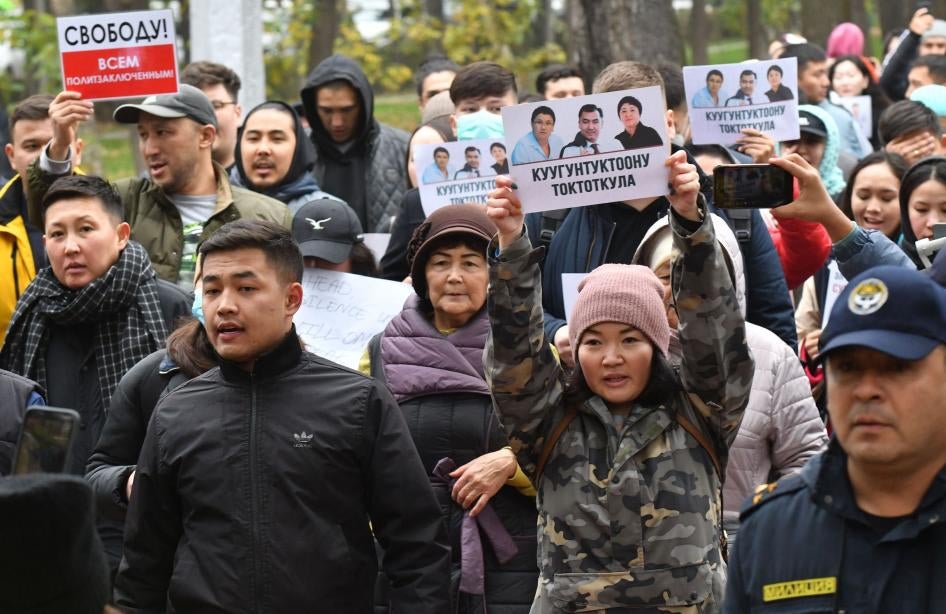More than 20 people in Kyrgyzstan were detained on Sunday, October 23, and placed under arrest for 48 hours, after publicly disagreeing with the impending transfer of an important dam to Uzbekistan as part of a border demarcation deal with the neighboring country. Those detained included activists, human rights defenders, bloggers, and politicians.
The next day, courts ordered several of the detainees be held in pre-trial detention for two months while the investigation continues. All of the detainees were charged with preparation for and organization of mass unrest. The police also initiated an investigation over “evidence obtained from a special investigation,” which transpired to be a series of edited and excerpted wiretapped conversations between some of the detainees. The wiretapped montage was leaked to social media and had apparently been constructed to seem like some detainees called for a government overthrow because of the contentious border agreement.
According to a statement by Kyrgyzstan’s Ombudsman, before their arrests, authorities conducted warrantless searches of the activists’ houses and seized personal property. In most cases, including with human rights defender Rita Karasartova, police forced entry into their homes and attempted to prevent video documentation of the arrests. The activists were transferred to detention centers and some were not allowed access to their lawyers.
Twelve of the 23 detainees are members of a newly created group created to protect the Kempir-Abad water reservoir in south-west Kyrgyzstan. The group opposes Kyrgyzstan's plan, which includes transferring territory and the dam itself to Uzbekistan. The Kyrgyz government maintains the agreement benefits Kyrgyzstan and both countries will manage the reservoir and have access to its water.
The reservoir plan was signed on September 26 as part of an agreement that seeks to determine official borders for the 15 per cent of non-demarcated territory between Kyrgyzstan and Uzbekistan. Protests in Uzgen, where the reservoir is located, began after residents worried about losing water access.
The agreement’s full text is still secret.
Protests demanding authorities release the activists and share information about the agreement took place on October 24 in Bishkek and Osh, Kyrgyzstan. Ahead of the protests Internet connectivity was severely limited, especially in Bishkek. Internet providers stated an accident on the channels of the upstream provider caused the failures.
Kyrgyz authorities should release the detainees and ensure that their rights, including due process rights, are strictly observed in any investigations going forward.










